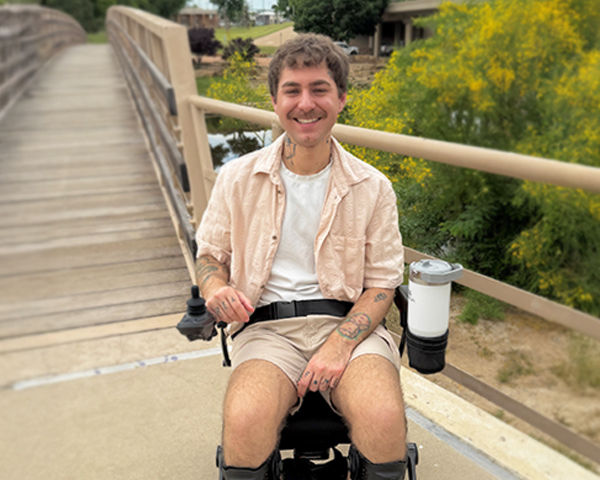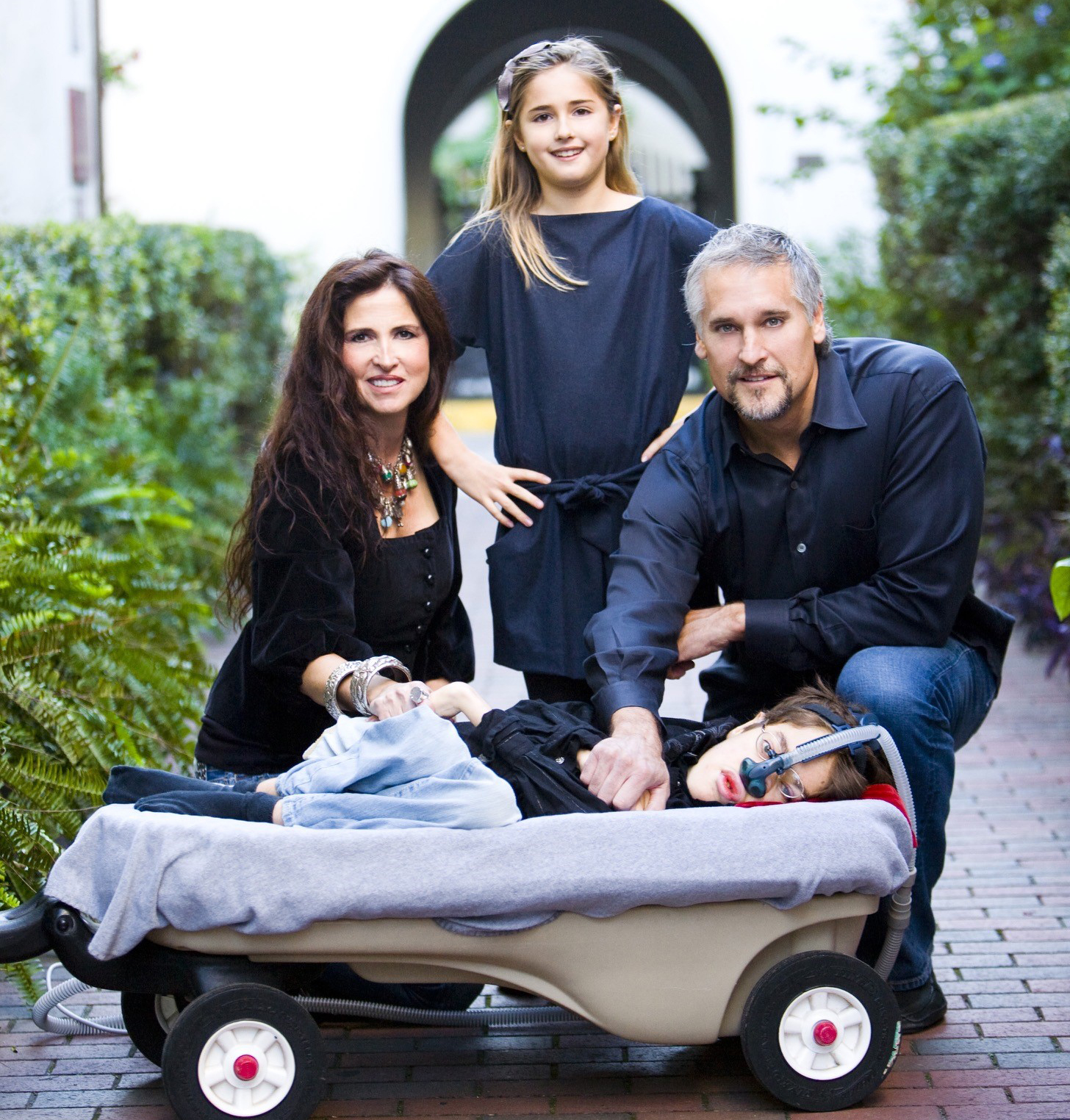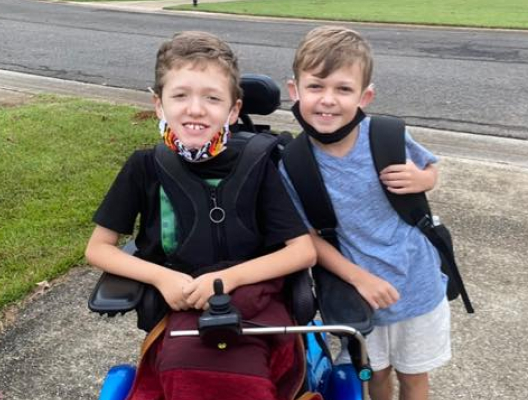

STRENGTHENING the global effort to CURE neuromuscular disease
News Express
Team O for the Win: A Young Boy's Battle Against Duchenne Muscular Dystrophy
Owin Petersen is 4 years old. Like most other kids his age, he likes to do puzzles and zoom around on his beloved tricycle. His parents describe Owin as their happy, loving, and giggly boy.
Owin was adopted by Paul and Trisha Petersen when he was 2. They noticed he was missing developmental milestones typical for his age. When he was 2 1/2, Owin was diagnosed with Autism Spectrum Disorder (ASD), a developmental disorder that can cause significant social, communication, and behavioral challenges.
“We were trekking along on this journey thinking, ‘Okay, if this is the worst of what he is handed, we can do this no problem,’” Paul wrote in a 2019 Facebook post. “And that’s when we got slapped upside the head.”
The Petersens started regularly seeing a genetic specialist who confirmed that Owin had ASD. The specialist also gave Owin a creatine kinase (CK) level test, which showed signs of muscular damage. Further testing revealed that Owin had Duchenne muscular dystrophy (DMD).
“We both did exactly what the doctor said not to do, and we started researching everything,” said Paul.
DMD is the most common muscular dystrophy, affecting one in 3,500 boys. Boys with DMD usually show symptoms by age 3, and it eventually leads to the degeneration of muscles and progressive weakness. The typical diagnosis of DMD means that these young boys, like Owin, will likely lose the ability to walk by their teenage years. Respiratory difficulties caused by DMD usually becomes life threatening by the late teens or early 20s.
“I can’t even explain the feeling of hopelessness,” says Paul.
Despite that feeling, the Petersens held tightly to the last shred of hope.
"And then we started seeing more of the research and headway that they’ve made,” Paul said. “So you’re somewhat hopeless, but can still have hope.”
While there is no cure for DMD yet, corticosteroids may help kids walk independently for longer and slow the progression of the disease. Owin takes a corticosteroid called deflazacort daily to help strengthen his muscles. The Petersens have increased their interaction with medical professionals, including neurologists, psychologists, and dieticians. Owin typically has about three to four appointments a week, including therapy and infusions.
The duality of Owin’s diagnosis of DMD and ASD will continue to impact him profoundly for the rest of his life. The Petersens know that as Owin gets older, they will need to make more adjustments to their family’s plans and lifestyle. But one thing that won’t change is the hope they continue to hold on to.
“In our heart of hearts, we still try to have a ton of hope that there are different things on the horizon for DMD,” Paul said. “I still hope that he can do anything that he wants.”
Luckily, the Petersens have an extensive network of family and friends, in addition to all of the people who follow their frequently-updated Facebook blog, “Team O for the Win.”
“One of the things that scared me toward the beginning of this was I was reading on some of those DMD group pages on Facebook that families would start acting differently or standoffish,” said Paul. “It’s something we luckily haven’t seen yet. Everyone has been pretty supportive.”
Clinical trials and experimental treatments are underway in the world of DMD research. Owin continues to capture the attention and hearts of his eight siblings, and his parents are excited to continue watching him grow up, and savor all the time that they have with him.
The mission of the American Neuromuscular Foundation is to provide funds to the next generation of researchers to advance the science and practice of neuromuscular and electrodiagnostic medicine. Your donation helps provide patients like Owin with hope for a cure. Even a small donation makes a big difference. Donate and join the global effort to cure NM disease!
Donate Today to Support Research and Researchers' Education
Every dollar raised is a dollar used to support researchers finding a cure. Administrative and staff assistance is provided by AANEM.
Apply for Research Grants & Awards
-
Development Grant Opportunities
-
Neuromuscular Research Grant Opportunities
-
Research and Educational Awards
Upcoming Events
-
Medical Student Scholarship Applications Open
-
Resident Scholarship Applications Open
-
ANF Neuromuscular Research Grants Notification
Thank You For Your Support
Together we are helping researchers find treatments and cures for tomorrow and improving the lives of patients with neuromuscular diseases.


